Climate Change Worries Open Minds to Modern Nuclear Technology
March 1, 2019
On behalf of the Canadian Nuclear Association, Abacus Data developed a different approach to surveying contemporary attitudes towards nuclear energy. Instead of looking principally at nuclear as a source of energy, we created a survey that explored whether people might feel differently about nuclear if the conversation was about how to find energy solutions that reduced carbon emissions.
This release details our findings from this study, which was conducted among 2,500 Canadian adults from February 8 to 12, 2019.
CLIMATE CONCERNS AND SUPPORT FOR A LOW CARBON ENERGY SHIFT
• The large majority (82%) of Canadians are somewhat, very or extremely concerned about climate change.
• Alongside this, 87% consider it somewhat, very or extremely important to “reduce the use of fossil fuels and increase the use of renewables and lower carbon energy sources”. Belief in the importance of this shift cuts across regional, generational and partisan lines.
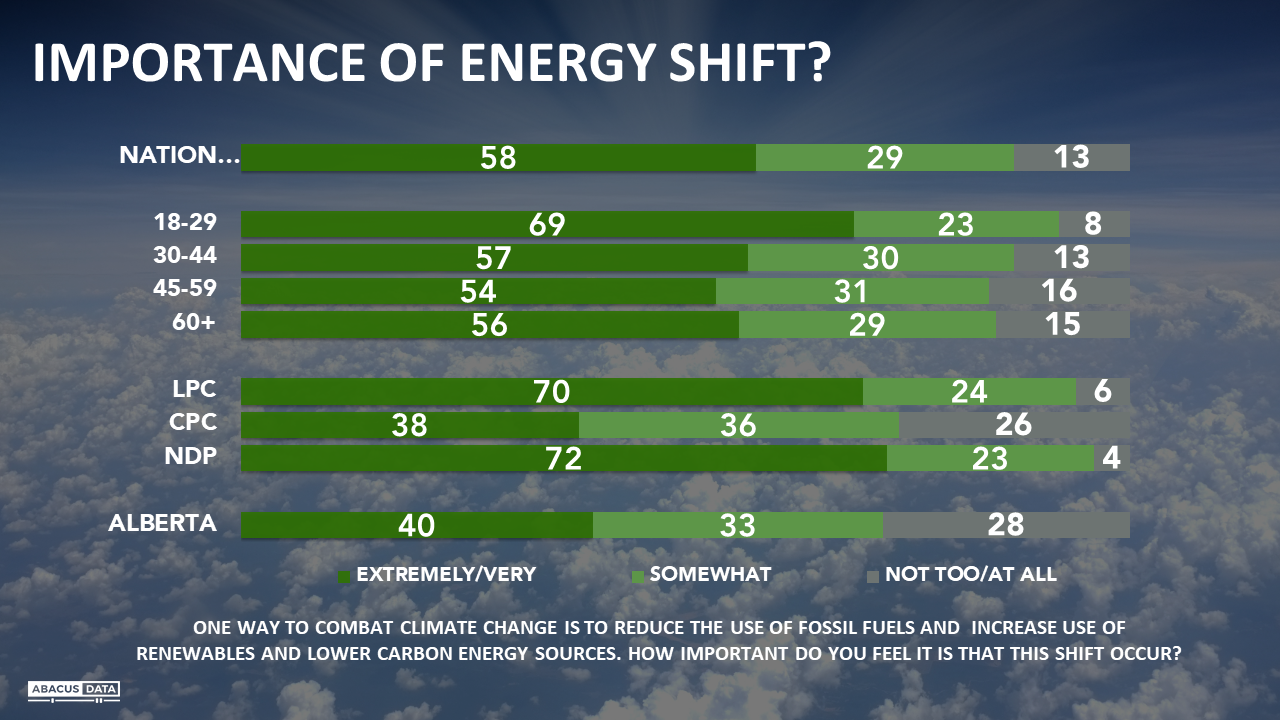
KNOWLEDGE OF CARBON IMPACT OF NUCLEAR
• To measure how familiar people are with the carbon impact of nuclear energy we included in our survey a series of questions that asked people whether they perceived each of a variety of different energy sources as having a greater, equal or lesser impact than oil. The results revealed that only 38% of Canadians were aware that nuclear is a lower carbon form of energy compared to oil.
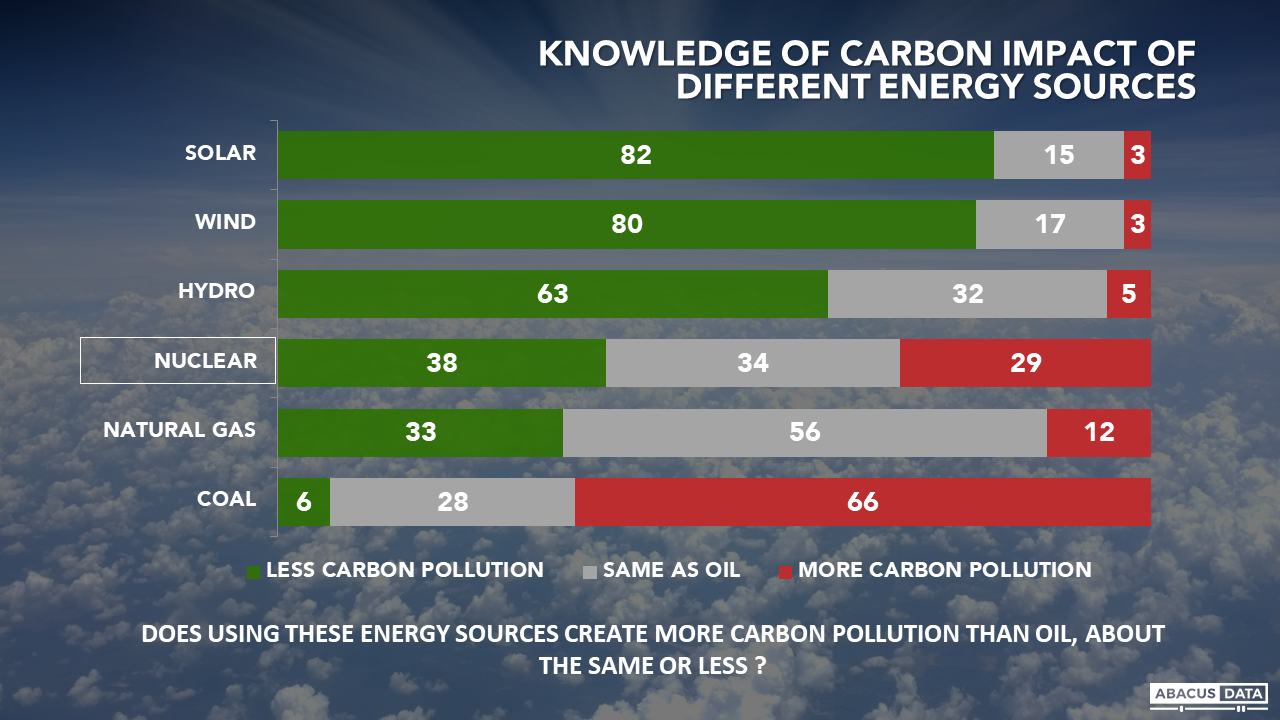
INFORMED REACTION TO NUCLEAR
• When informed that nuclear power emissions are similar to solar, wind and hydro, and asked how they felt about the idea of using nuclear in situations where it could replace higher emitting fuels, a large majority (84%) say they are open (35%) to or supportive (49%) of this.
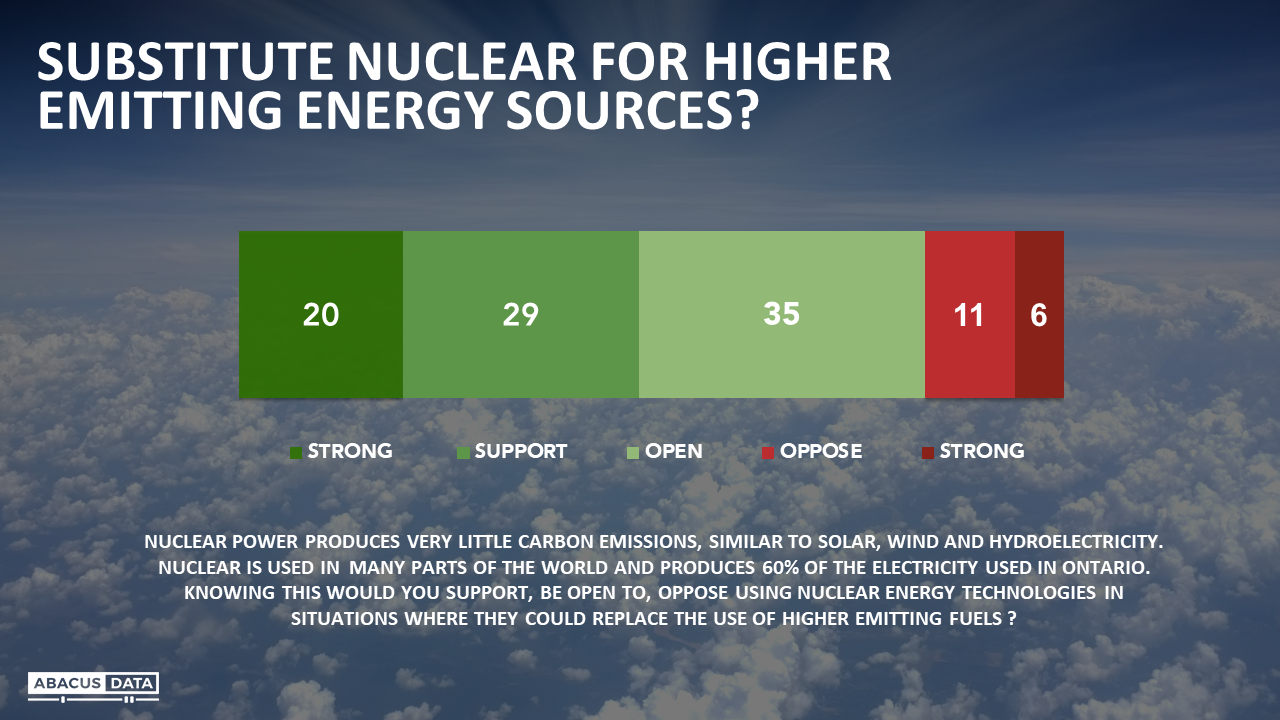
REACTION TO SMALL MODULAR REACTORS
• When informed that small modular reactors can be built transported to a site and once installed can offer years of reliable, low carbon power and heat to support the needs of consumers and economic activities like mining” a large majority (86%) say they are open (43%) to or supportive (43%) of this.
• Similar support is found for the idea of a five-year trial project to test and demonstrate the usefulness of small modular reactors, located on an existing regulated facility.
• The idea of using small modular reactors to help reduce oil sands emissions also shows very broad support or openness.
• Support for the idea of a trial is predicated on several arguments that resonate with people: including reducing emissions and fighting climate change, improving air quality and health, offering a reliable heat and power source, and helping Canada develop skills in clean technology.
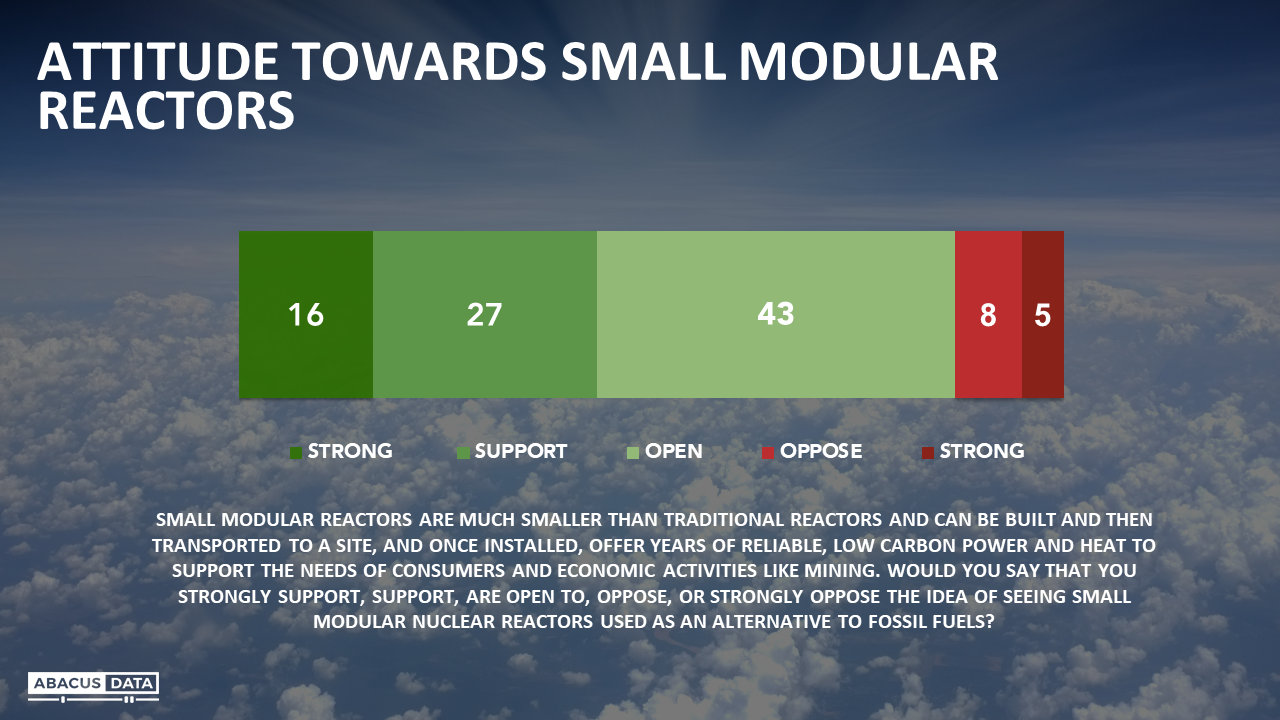

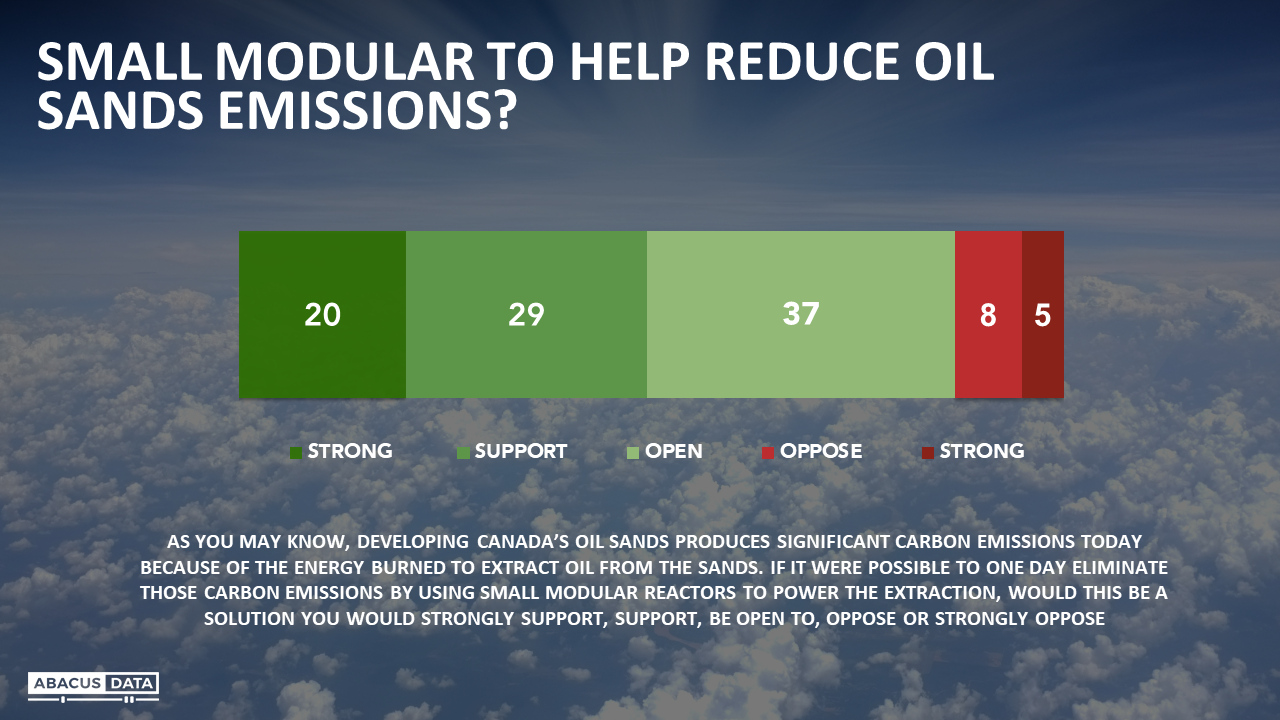

SURROUNDING OPINIONS
• In our survey, we also explored some surrounding opinions. Among the interesting findings were that 83% believe that continuing to use fossil fuels is more dangerous to the planet than nuclear energy. Similar proportions feel that “to combat climate change we need to be open about nuclear power.”
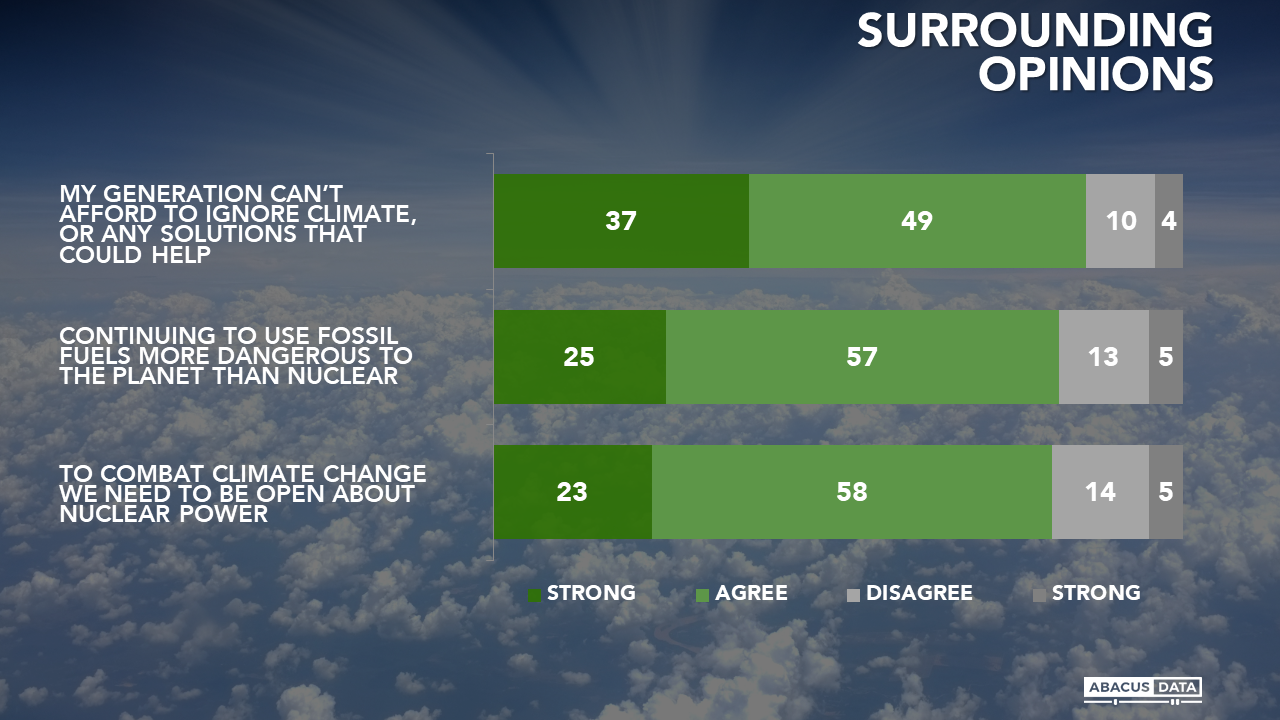
UPSHOT
According to Bruce Anderson: “These results make clear that for many people, the issue of climate change and the need to reduce carbon emissions, means being open to potential new roles for nuclear technology. To date, many people are unaware of the carbon-reducing contribution that nuclear can offer, and the data indicate that when informed about the facts, there is broad interest in exploring potential trials in a regulated context.”
METHODOLOGY
Our survey was conducted online with 2,500 Canadians aged 18 and over from February 8th to 12th, 2019. A random sample of panelists was invited to complete the survey from a set of partner panels based on the Lucid exchange platform. These partners are double opt-in survey panels, blended to manage out potential skews in the data from a single source.
The margin of error for a comparable probability-based random sample of the same size is +/- 1.9%, 19 times out of 20. The data were weighted according to census data to ensure that the sample matched Canada’s population according to age, gender, educational attainment, and region. Totals may not add up to 100 due to rounding.




